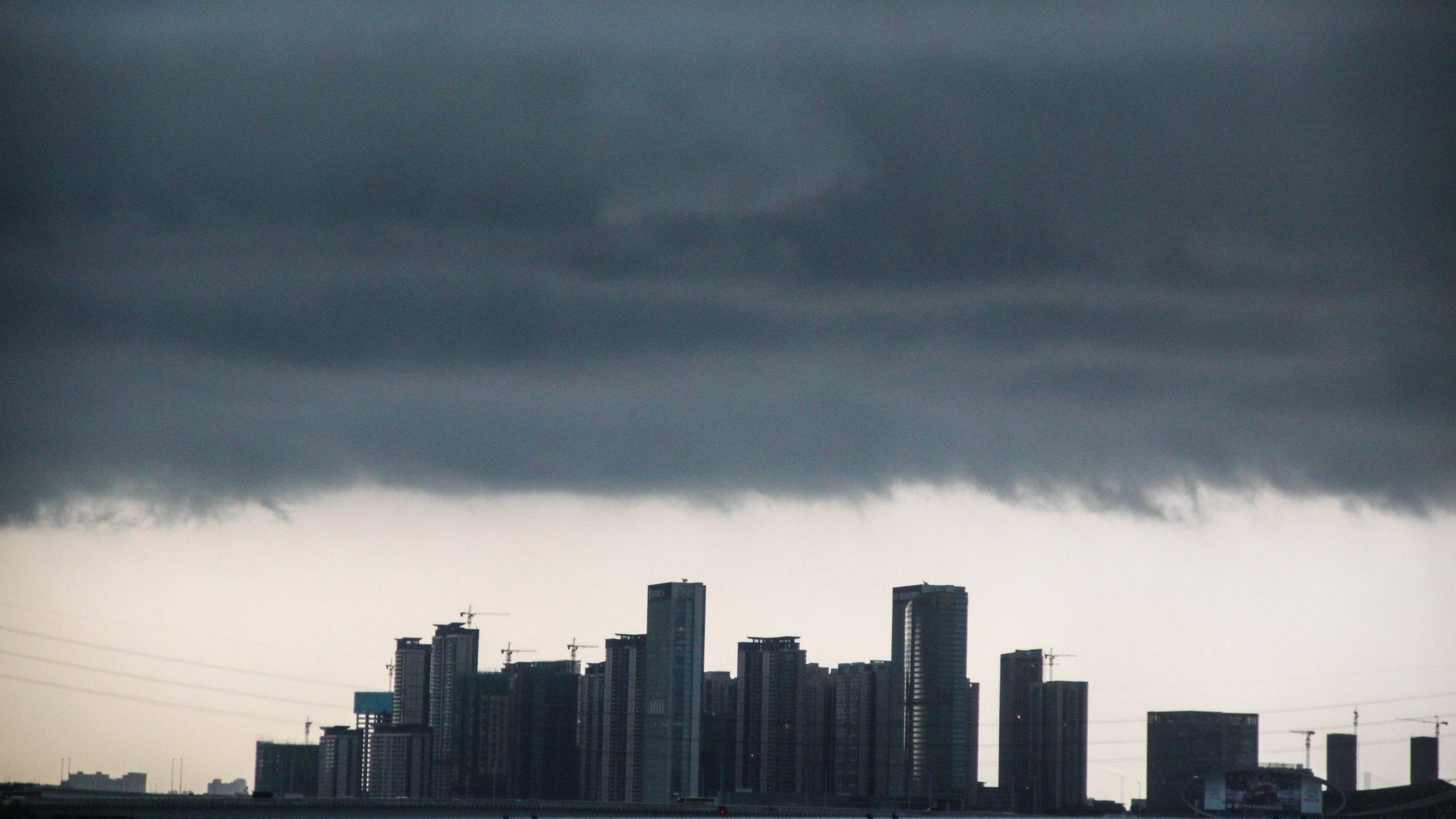China's overheated property market
- Published
Chinese people have been rushing to buy properties before new rules come into place.
There's busy and then there's busy.
Officials at a housing registration office in suburban Shanghai were so preoccupied that they didn't bat an eyelid when we walked around with a small camera to film the queues.
In communist China, where the state has a deep-seated suspicion of the foreign media, that's very unusual. That's how busy they are.
The announcement of new measures - meant to cool the housing market in China's mega-cities - caused a surge in sales. People wanted to move in before the minimum deposit rose.
The police were on hand to keep order at Baoshan property trading centre when we visited. There were crowd barriers outside.
'Very sad'
Shanghai is home to 25 million people. The development in the city has been vast and it's been quick.
The apartment I am sitting in as I write this was a field 20 years ago. Shanghai is still building - where it can find the space.
Howard Huo is one of the many trying to find a house amidst that space, and he's in a hurry.
In the six months he's been waiting for the right paperwork to come through his friend has seen the value of his apartment go up, by 60%.
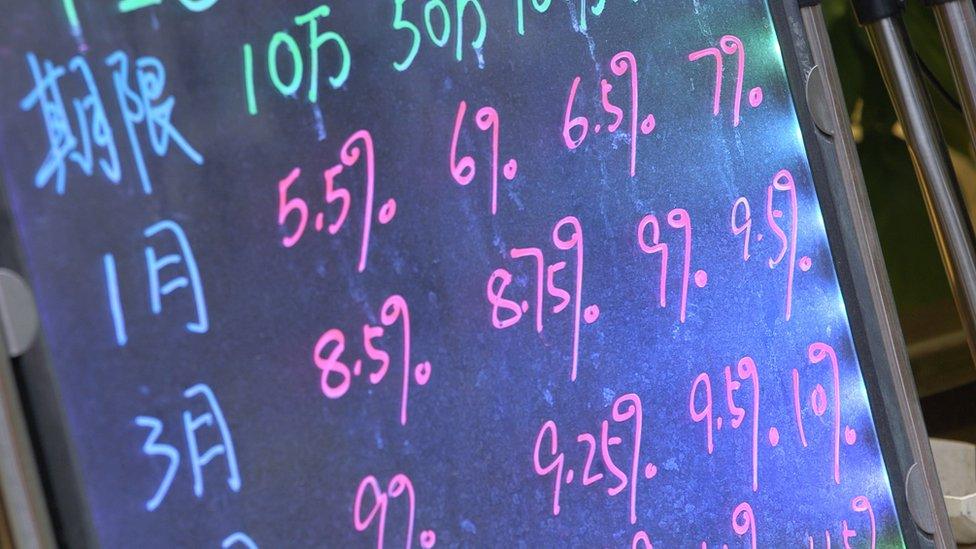
Beiing has promised new restrictions after growing concern about house buyers using peer-to-peer loans to finance deals
He told me he's "very sad" about that. His mate said he was "proud of it".
At 28, Howard is stuck in the middle. The government measures mean buyers like him will need more money to put down.
But at the same time credit is cheap in China.
That's one of the counter-measures meant to help as growth in the world's second biggest economy is slowing. So how far will he stretch himself to get into that new home?
"I'm going to borrow 70% of the housing price," he told the BBC, as any more would be "crazy" he reckons.
"I will borrow from the bank, it's much more safe," Howard said.
The deposit is coming from his parents, a common arrangement in China. But the government has been spooked recently by reports some buyers are using riskier online providers to part finance their house buying.
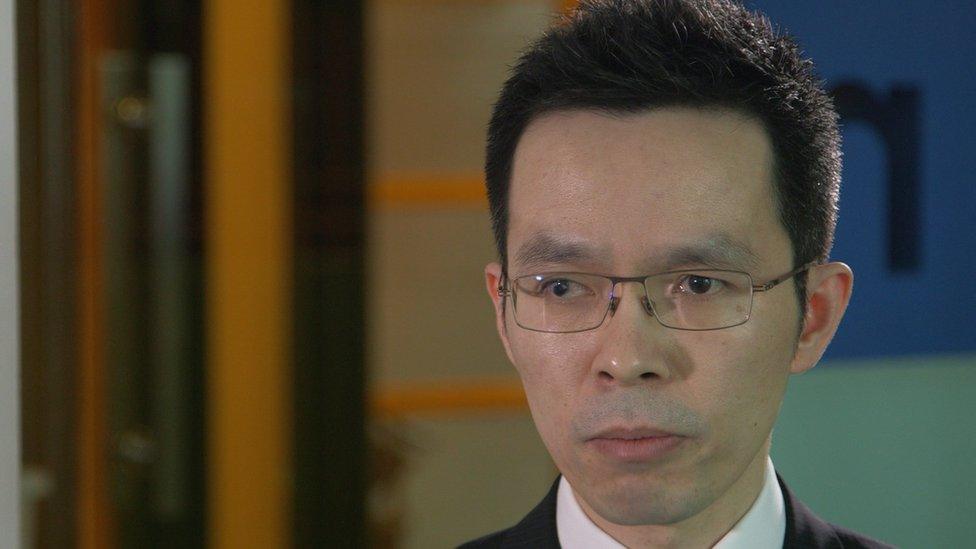
Credit is cheap in China and some experts say the loose environment has lead to growing concerns about bad loans in the real estate market
Peer-to-peer lending is a big growth business in China. Companies like Lufax or Dangtian Wealth are challengers to the big state backed banks, which prefer to lend to companies not people.
But it's risky. About a third of firms have got into trouble.
Property analyst Joe Zhou says there is "definitely concern about the credit environment" in China.
So money is cheap and there is some growing concern about bad loans. The government's promised new restrictions on "grey market" lenders, but it hasn't said what that will be, yet.
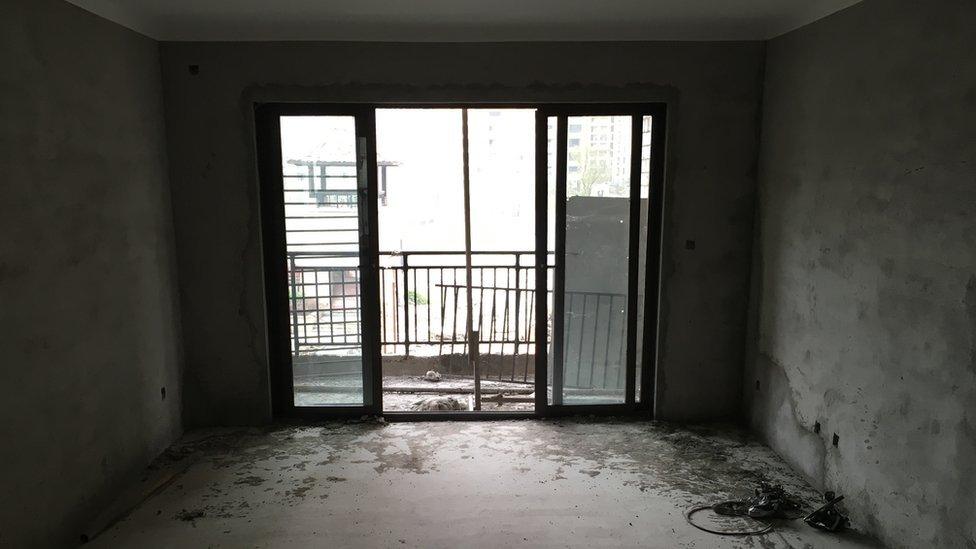
China's major cities may be worried about an overheating property market, but in dozens of smaller cities there are vast numbers of unsold or vacant houses
"The problem is whether the money should go in to real estate or into other sectors," he said, adding "currently given the risks in the real economy lots of investors are getting loans and investing in real estate".
China's Housing Minister Chen Zhenggao recently said he thinks the housing market is in "good health".
But it's not just too much money swilling around that the country's leaders worry about. There's a lingering concern about too many empty houses.
The polarisation is staggering. Outside of the major cities, particularly in the north, there are numerous empty tower blocks, even empty towns.
An hour out of Shanghai, in Huaqiao, I found myself standing in a shell of a room at the bottom of a nearly completed tower, the tenth to be completed on that particular plot after five years of building.
Every time I took a step there was an echo.
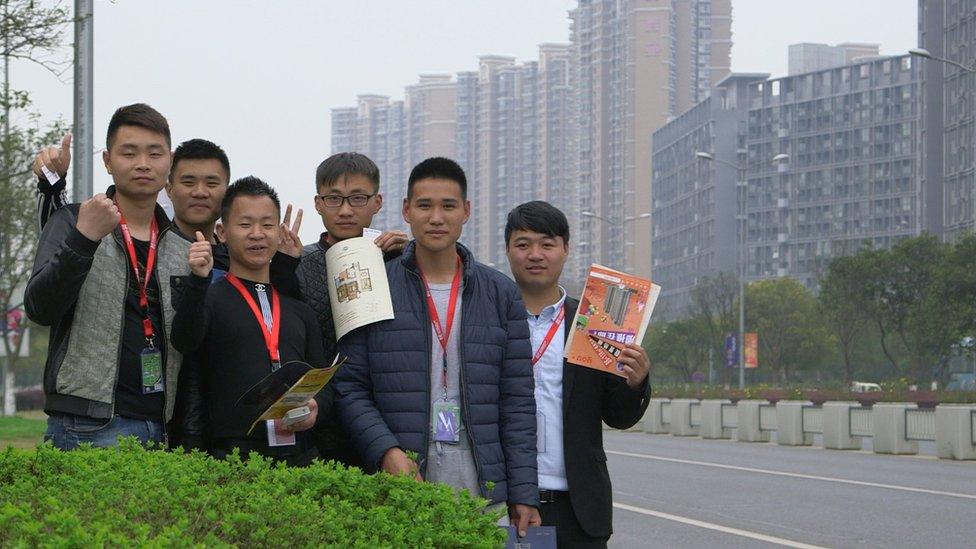
Outside of China’s major cities the concern is more about a vast inventory of unsold houses
Looking out of the empty window frame I saw the first phase which was completed in 2011. It's only 40% full.
Property may be a good store of value for investors who are fearful of another stock market dip in China, but a huge inventory of unsold homes remains.
Filling those with more new city folk remains a key aim for China's leaders. But they're keeping an eye on that loose credit too.
- Published16 February 2016
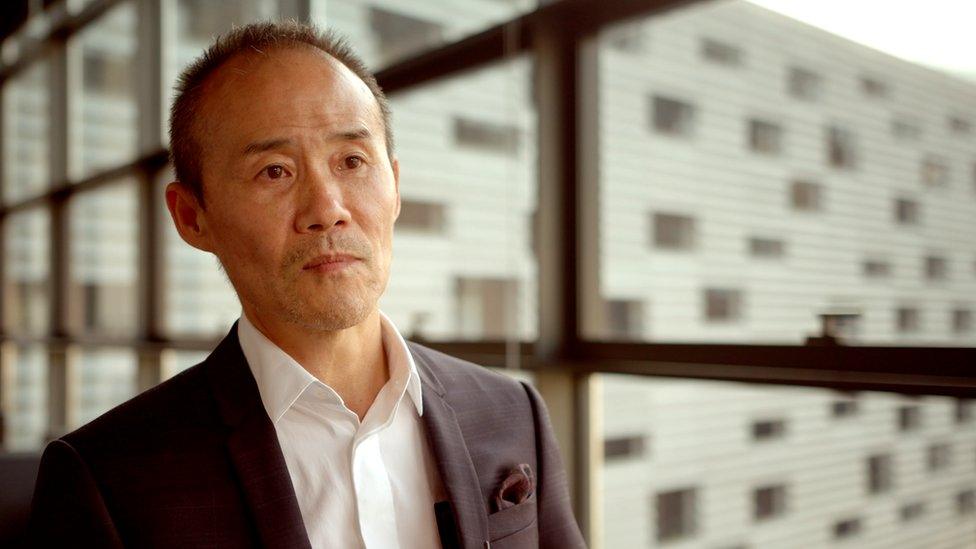
- Published19 January 2016
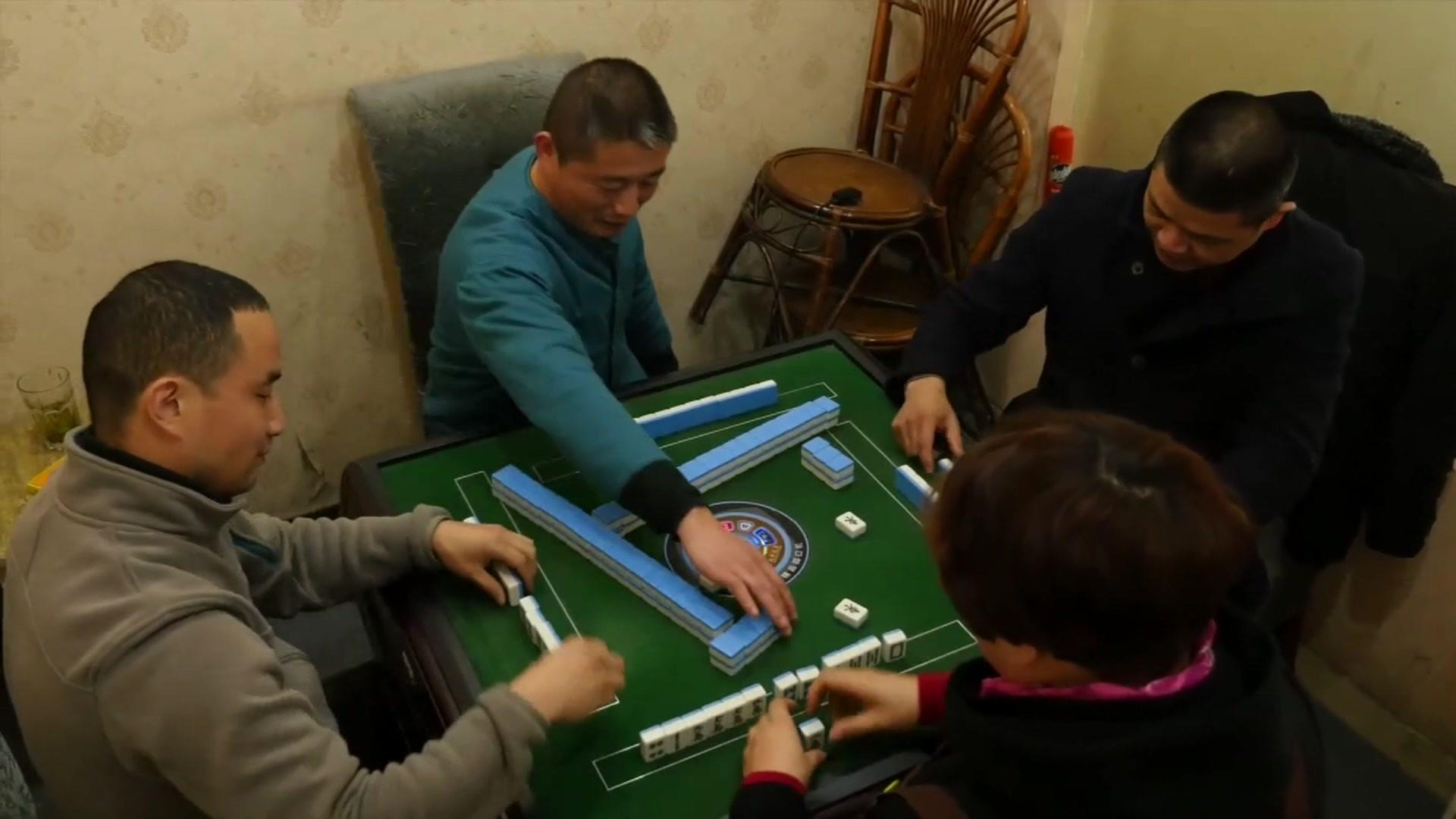
- Published21 April 2015
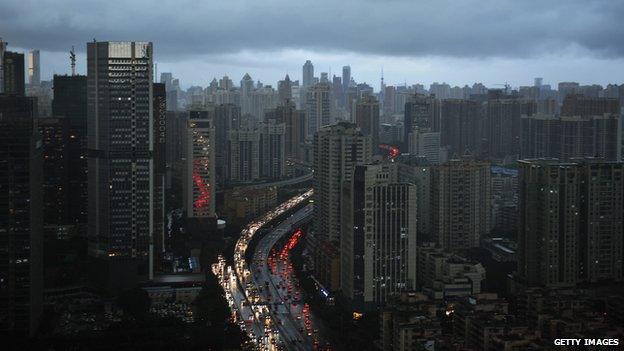
- Published20 January 2015
